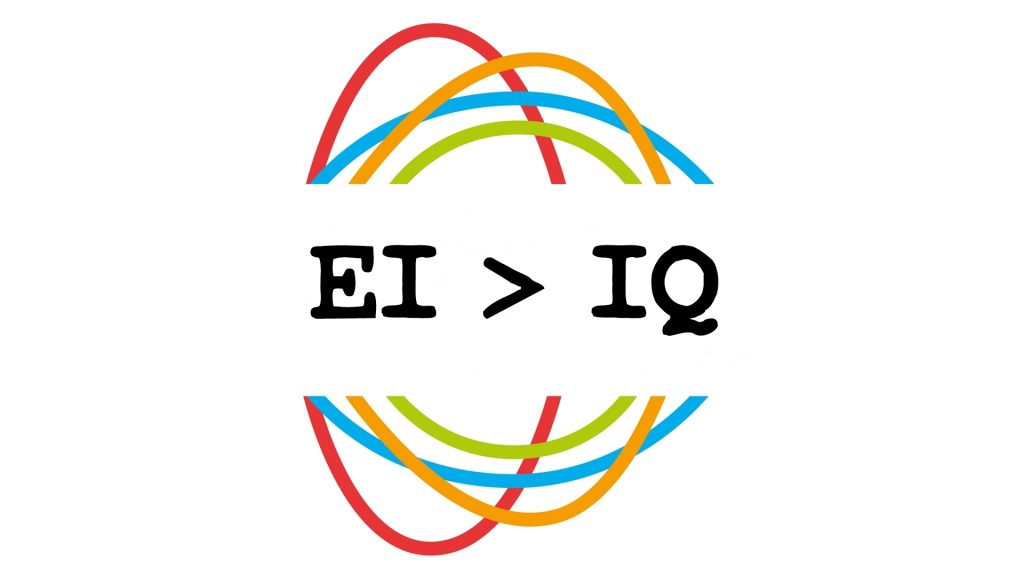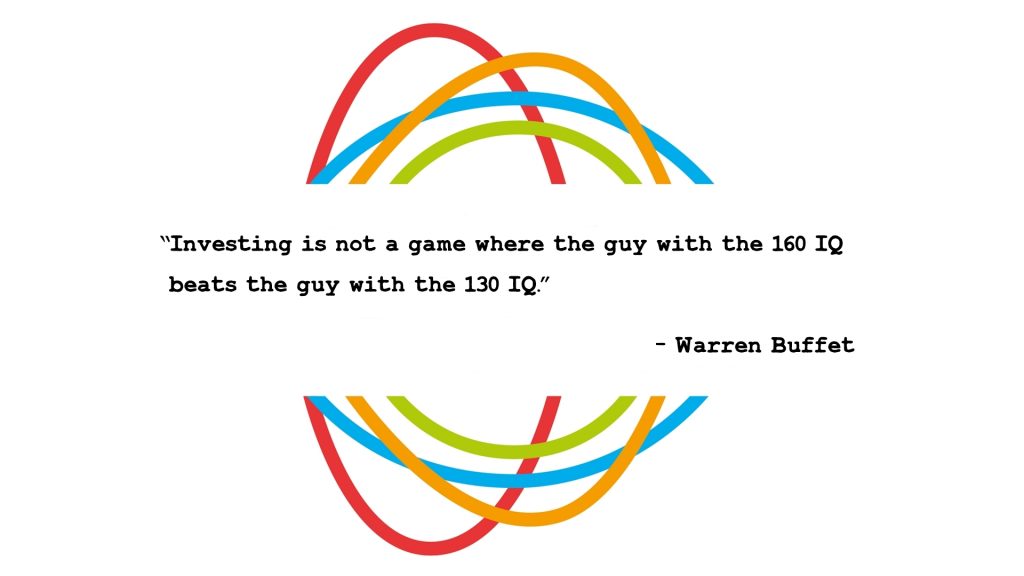Humans are not rational investors
While strategies like analyzing historical stock trends, technical analysis, and financial ratios help us make more informed decisions, the average investor still underperforms when compared to the market.
People tend to invest with their emotions, and often fall short because of this.
Emotional intelligence represents the ability to understand and manage one’s own feelings and emotions. Emotionally intelligent people excel at managing relationships with others and making favorable decisions under pressure.
Investors who exhibit high self-awareness recognize when their emotions begin to overtake rational decision-making. Likewise, those with self-regulation can keep their emotions in check and avoid rash decisions they’d be likely to regret.
By properly understanding ourselves through our emotions, our behavior, and our natural response to fear, we can begin to invest more intelligently.

With regard to investing, emotional intelligence remains even more important than IQ. While IQ enables you to analyze complex investment strategies, EI provides you with the qualities of patience, discipline, and perspective; three vital skills for responding to the volatility of the stock market.
So, by pairing even a decent strategy with the emotional resilience to follow it, you will be further ahead of those of us still falling into those tricky behavioral biases.

Don’t focus on the minute-to-minute returns.
Despite the enormous wealth-creating power of the market, looking at it too closely can be terrifying. A daily look at portfolio values means you see a loss 46.7 percent of the time, whereas a yearly look shows a loss a mere 27.6 percent of the time. Limited looking leads to increased feelings of security and improved decision-making.
Don’t forget how markets work.
Stocks outperform other asset classes by about 5 percent on a volatility-adjusted basis. Long-term investors have been handsomely rewarded by equity markets, but those rewards come at the price of bravery during periods of short-term uncertainty.
Don’t love your stocks / mutual funds.
Stocks / Mutual Funds won’t love you back, and if you fall in love with a security you’ll feel as though you can never sell it. Many people refuse to sell an investment that is no longer fundamentally sound because they just can’t bring themselves to admit that it was a bad decision. Some say they inherited the investment from their parents and just can’t dishonor their parents by selling it. Those are all signs of allowing emotion to take over instead of allowing logic and solid fundamentals to drive the decision.
Figure out how much you can afford to lose.
Decide when creating your investment plan how much of a loss you think you could endure before it happens, so you don’t take more risk than what you’re able to handle. When the market’s tanking, you’ll probably feel anxious, sad, maybe even depressed. Acknowledge that it’s normal [to feel that way].
Ask questions.
Ask yourself a series of questions before making any investment. Including how it will help your goals, what the worst-case scenario is and how your life would change if the investment doubled – or collapsed.
Take time to deliberate.
Take your time to decide, don’t let yourself be pressured or hurried and write down the pros and cons of a particular decision. It will help you be less emotional and make a better considered decision.
Think ‘opposite’ when it comes to emotions.
When you feel fear if markets are down, that’s a signal to be happy and ready to buy. Conversely, when an investor feels greed when the markets are hot, that’s time to put the brakes on the feeling of euphoria. There is the urge to want more, and reach for higher and higher returns, not realizing that you will take greater and greater amounts of principal risk.
Follow a formula for asset allocation and proper rebalancing.
Rebalancing is the only way to guarantee that you will consistently buy low and sell high. However, it feels very counterintuitive to buy losers and sell winners, so very few individual investors actually do rebalance. If your allocation is 50 percent equities and 50 percent bonds, and equities have a great year that throws your balance to 60 percent equities and 40 percent bonds, a disciplined investor would sell off some equities to bring it back to proportion.


